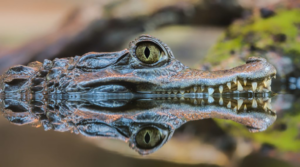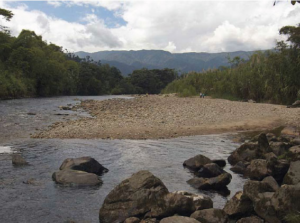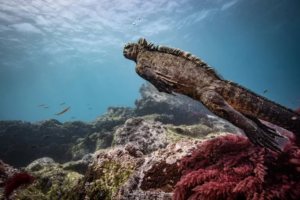Animal, plant, and marine biodiversity constitute “natural capital”, which allows our ecosystems to function, economies to remain productive and we have a good quality of life. Unfortunately, the planet is suffering a significant loss of this great biodiversity. Deforestation still remains a major problem, affecting around 13 million hectares annually, destroying and altering the habitat of critical animals and plants. In addition to this, the world has also lost approximately 40% of the coral reefs in the warm waters known as “the jungles of the sea”, the importance of corals lies in being formers of white sand beaches and tropical islands, also They are important to avoid beach erosion, and to protect us from strong waves during storms and hurricanes. In addition, corals help capture carbon dioxide (CO2) from the atmosphere and fix it in their skeletons. Despite all this, the decline of all species is evident, so much so that the global Living Planet Index (IPV) 2020 shows an average collapse of 68% of the almost 21,000 studied populations of mammals, birds, amphibians, reptiles, and fish between 1970 and 2016, mainly as a result of habitat loss, degradation, and overexploitation. (PensemosVerdeMX, 2017) (Banco Mundial, 2018) (WWF, 2020)
The loss of biodiversity has negative effects, and by not maintaining a healthy planet, we compromise our very existence in this way. It is unfortunate to know that finding ourselves in America, the continent with the greatest biological diversity, is precisely Latin America and the Caribbean, the region with the greatest loss among all the regions of the world, with 94%. The causes are multiple, the overexploitation of species, climate change, and the introduction of invasive species, but the main one is the destruction and loss of habitats, due to our way of producing food, which causes the decline and extinction of many species of fauna and flora. (WWF, 2020)
Latin America and the Caribbean are home to countless ways of life. According to the United Nations Environment Program (UNEP), around 60% of the world’s terrestrial life and various marine and freshwater species can be found in this region. Therefore, safeguarding this great biodiversity is the key to achieving global climate goals. (NRDC, 2020)
It is incredible to know that according to researchers, only in the Amazon it is very likely that there are at least three times more plant species, apart from those that are currently known, being the region that is home to 10% of biodiversity in the world, contributes significantly to the extraction of carbon dioxide from the atmosphere, in addition to being a large area that cools the planet, one of the most powerful to mitigate climate change and home to several indigenous peoples and innumerable plant species And animals. (NRDC, 2020) (National Geographic, 2019)
Each species of flora, fauna, and any form of life fulfills a very important function in the natural cycle of life on Earth, which allows our planet to remain healthy within what we allow, but if we are ending one in one or worse still of hundreds or thousands of species and not only of species but of natural resources that our planet provides us, we are ending without realizing our own existence.
In order to protect, protect, and value each of these resources, of our Natural Heritage, we first have to start by knowing what we have, it is always said that you cannot value what is not known, you cannot take care of the unknown, what It calls on people to generate spaces for dissemination, which contribute in some way to generating environmental awareness, to understand that it is not a plant or an animal only and that our actions, no matter how insignificant they seem, do affect and perhaps not in the long term, that insignificant fact against nature is the straw that spills the glass and the one that causes the beginning of the end and with it the beginning of our end on this planet, of course, we are no longer at that beginning.
It is ironic to think that we are the highest pillar in the food chain, that we are rational animals, because we can think, however, the irony is that we are not indispensable as we believe in this world, the world without us regenerates as We have seen at the beginning of this Pandemic that we are experiencing when people could not leave, factories stopped working, cars did not circulate on the streets, where a man was generating a minimum environmental impact, it looked like water in the streets. Beaches became transparent, the air was purified and where plants and animals recovered their space, their tranquility, their freedom to occupy and travel through spaces that were their habitat, and that little by a little man with his expansion and overpopulation have been ended and limiting more and more.
This is not to say that consuming the resources we have is wrong, what is wrong is damaging the ecosystem by ending our resources without allowing them to regenerate in a healthy way for the planet, maintaining their natural cycle and this encompasses everything. , animals, plants, environmental resources, water, and air. For this, there is frequent talk of carrying out sustainable and sustainable activities, that what we do today does not compromise the well-being of future generations.
Generating environmental awareness is not easy and it is even more difficult when the country where we are located has an infinity of resources, flora, fauna because we are used to having everything and of such good quality that the only thing we think about is taking I take advantage of it without understanding or without wanting to understand that if we do not take care of what we have and only use it by overexploiting it, the day will come when we no longer have anything to consume or sell and it is too late to generate a change.
Ecuador is one of those cases, in relation to its territorial extension, Ecuador has more species per unit area than any other country on Earth, we have a country paradise, but we do not value it, we do not generate environmental awareness, it is sad that our country is valued and cared for by foreigners, outsiders, than ourselves. For this reason, we want to contribute with a grain of sand and generate a change, making known what little or much that we can know and giving reasons, arguments, why certain activities are prohibited, inculcating people and spreading through it, this knowledge, which will help conserve biodiversity and unique ecosystems in the world, and essential to keep the only planet on which we can live healthily.
Some of these reasons that we can mention are the following, you know the severe restrictions to enter the Galapagos Islands, a natural treasure and Natural Heritage of Humanity, this is due to something so simple to understand if the why is indicated, the controls to enter this unique archipelago in the world is due to its immense concentration of flora and fauna endemic to the place, that is, animals and plants that only exist in that place, that do not exist in any other part of the world, with this example We are going to understand the controls that are not so strict but that are also given in many other places, mainly in Protected Areas, which protect a large number of species of animals and plants in the country, but what happens in Galapagos? Galapagos is an archipelago where there are islands and islets, a small place where an insignificant problem for people who do not know about the subject, such as the introduction or extraction of a species, or resources, can end up ending an entire ecosystem. Introducing an invasive species, that is, a species that is not from that place can kill several other species, it is a predatory species, which will try to subsist in such a way that it will consume resources, and feed on other native or endemic species, and this happens in both plants and animals if we carry a seed, it is the same, a species from outside will end up growing in a place where it does not belong and this cycle will repeat itself, it will take resources that they consume other species and will invade their habitat. On the other hand, extracting, it is ending in the same way with them, taking them to a new place where they will become invasive, returns us to the same cycle, in addition to running into a much more extensive problem that is the illegal trafficking of species. To extract resources, many people like to take memories of the place they visited, and sometimes those memories are stones, sand, and shells that we find in the sand in the case of the Galapagos and it seems funny but it is not, there is a control of this also in these islands, what would happen if each person who visits Galapagos takes a bit of sand for hundreds of years, we are going to end this resource and with it, we are going to alter it to the point of ending life in this place, biotic factors ( organisms that have a life) and abiotic ones (inert elements, without life), are essential for the correct balance and development of an ecosystem, this is where this type of control lies.
With regard to the illegal trafficking of species, it is sad to know that there are people who trade wild species considered “exotic” in many other places and who sell them, or sell parts of them or products, but it is even sadder to know that there are people who buy these animals or their derivatives, remaining this problem. You have to understand that a wild animal must be in its natural habitat, it is not a domestic or farm animal, which we can take care of and keep in our home. We cannot and we should not have, buy or sell wild animals, no matter how beautiful a wild animal looks, we should not have it in our home simply because we want it, no matter how well cared for and fed we pretend to have them, they will never be better than being in their natural habitat. Unfortunately when this happens, when we keep a wild animal in our home for a long time, it loses its survival instincts, and reinserting it into its natural habitat becomes complex and many of the times impossible, because they have been mutilated or no longer. They depend on themselves to be able to feed themselves, becoming easy prey for their predators, and that is where they become a living sample that helps to generate environmental awareness from rescue centers or zoos, which seek to eradicate this problem, and at the same time allowing that in an educational way we can understand this problem, and have the opportunity to meet species that maybe never in our lives we can appreciate in their natural habitat, or even worse if a change is not generated in society, they are the only one’s places in the world where we find wild animals from each region, understanding that if that happens we will have finished with the resources s, flora and fauna of our planet, without having the hope of being able to recover them, thus confirming that man is the one who ends man, with his own existence.
All activities generate an environmental impact and tourism is no exception, however, from our activity, we will do our best to generate sustainable and sustainable tourism, educating people, promoting, spreading, and generating environmental awareness.



